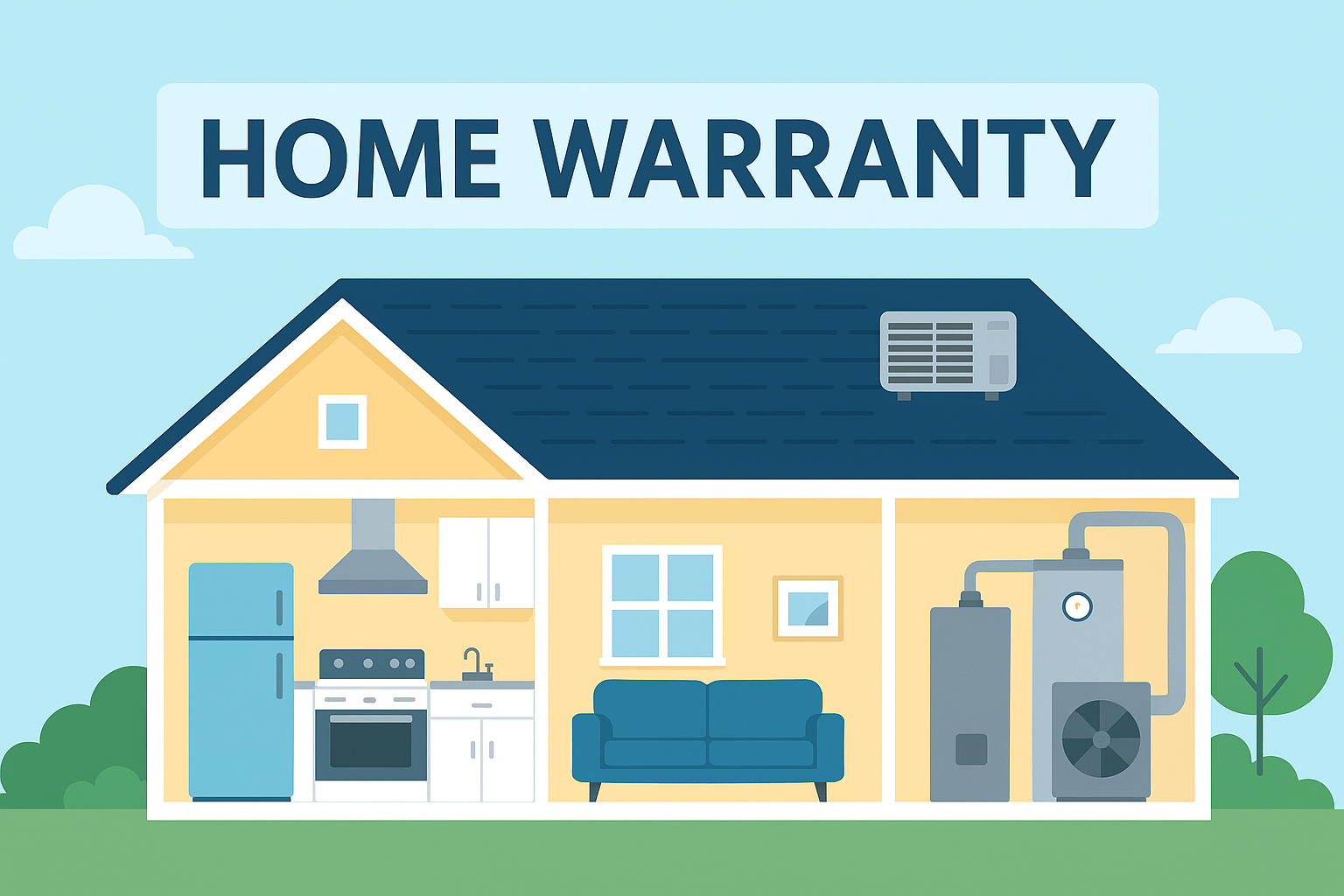Why Home Warranty Companies Set Coverage Limits
December 1, 2025

When shopping for a home warranty, you may notice that coverage limits and exclusions vary widely between providers. Understanding these limitations is essential to make an informed choice for protecting your home systems and appliances. While home warranties can save you from unexpected repair costs, they are not all-encompassing.
In this article, we’ll break down why home warranty companies have coverage limits, what’s typically excluded, and how to get the most out of your home protection plan.
What a Home Warranty Does (and Doesn’t) Cover
A home warranty is designed to protect homeowners from the costs of repairing or replacing well-maintained home appliances and systems that fail due to normal wear and tear. Coverage usually includes HVAC systems, plumbing, electrical components, kitchen appliances, and sometimes major systems like water heaters or garbage disposals.
However, it’s important to note that a warranty does not cover everything. Certain conditions, damages, or property types fall outside the scope of standard home warranty policies. Knowing these limitations upfront prevents surprises later on.
Are Secondary Damages Covered?
One of the most common misconceptions about home warranties is that they cover secondary damages—the damage caused by a failing appliance or system.
For example:
- If a washing machine leaks, your warranty may cover the repair or replacement of the washer itself.
- However, it will not pay for water damage to your flooring, cabinets, or drywall caused by that leak.
In most cases, secondary damage is the responsibility of your homeowner’s insurance policy, not the home warranty. Home warranties and homeowners insurance serve different purposes: warranties focus on repair costs, while insurance covers property damage.
Also Read: Are Solar Panels Covered by Home Insurance?
Structural Elements Are Excluded
Home warranties do not cover structural issues. This includes:
- Foundation problems
- Support beams
- Load-bearing walls
Similarly, damage caused by natural disasters—like floods, earthquakes, or windstorms—is generally excluded. Structural repairs are typically handled through homeowner’s insurance, which is designed to cover damages from external forces.
For more details on what a typical warranty covers, check out our home warranties service contract list.
Installation Mistakes and Poor Maintenance
Home warranties assume that systems and appliances have been properly installed and maintained. Problems caused by incorrect installation, faulty wiring, or neglected maintenance are generally not covered.
This means:
- Appliances installed improperly may be rejected for coverage
- Systems that haven’t been cleaned or maintained according to the manufacturer’s instructions may not qualify
- Damage from missing parts or shoddy workmanship is excluded
Understanding this can save you from unexpected out-of-pocket repair costs.
Hazards and Dangerous Substances Are Excluded
Home warranties also exclude appliances or systems that involve hazardous materials. Examples include:
- Lead-based products
- Asbestos
- Acid or corrosive materials
- Gas leaks or carbon monoxide leaks
- Units marked unsafe or red-tagged by inspectors
These exclusions protect both the warranty provider and the homeowner, since repairing or replacing these systems can pose serious safety risks.
Typical Home Warranty Limits
Coverage limits vary depending on the provider and plan you choose. Key points include:
- Activation period: Most warranties begin coverage 30 days after the initial payment, assuming the account is current.
- Property eligibility: Warranties typically cover single-family homes, condos, townhouses, and modular homes.
- Exclusions for business use: Properties used commercially—like daycare centers, schools, or offices—usually aren’t covered.
Some providers offer customizable add-ons or supplemental plans to increase coverage or include items not covered under a standard policy.
What a Home Warranty Actually Covers
Even with limitations, a home warranty still covers a wide range of repairs and replacements:
- HVAC system repairs
- Plumbing and electrical system breakdowns
- Kitchen appliances like refrigerators, ovens, and dishwashers
- Laundry appliances such as washers and dryers
Coverage limits are often in place to prevent policy misuse while keeping premiums affordable. The flexibility to add supplemental coverage means you can tailor the policy to meet your specific needs.
How to Maximize Your Home Warranty Benefits
To get the most from your home warranty, consider these tips:
- Read the fine print: Know what is included, excluded, and any service limits.
- Schedule regular maintenance: Keep appliances and systems in good working condition.
- Document repairs and installations: Proof of proper maintenance can help in claims approval.
- Consider supplemental plans: Add coverage for items not included in standard policies.
- Coordinate with homeowners insurance: Understand which damages are covered by insurance versus the warranty.
By understanding coverage limits and exclusions, homeowners can avoid costly surprises while enjoying the peace of mind that a home warranty provides.
Why Home Warranty Limits Exist
Coverage limits are not arbitrary—they exist for several reasons:
- Risk management: Limiting coverage helps warranty companies stay financially viable.
- Encouraging responsible use: Homeowners are incentivized to maintain their systems properly.
- Pricing balance: Limits allow for more affordable premiums while still offering significant protection.
Ultimately, the right home warranty can protect your budget against major appliance and system failures without replacing the need for homeowner’s insurance.
Conclusion
Home warranties are an excellent tool for safeguarding your home systems and appliances, but they come with clear coverage limits and exclusions. By understanding these boundaries, you can select a plan that fits your property, lifestyle, and budget.
For homeowners seeking peace of mind, choosing the right home warranty—alongside proper maintenance and a reliable homeowner’s insurance policy—ensures protection against the unexpected while minimizing out-of-pocket repair costs.